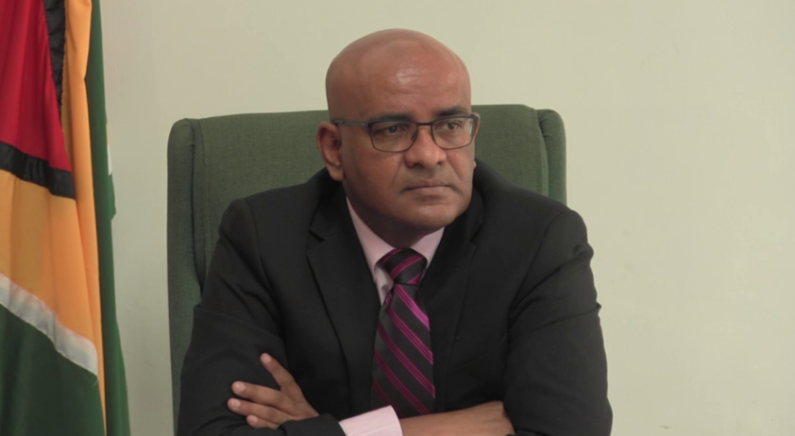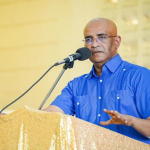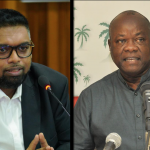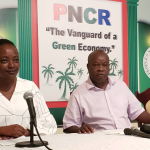
Vice President Bharrat Jagdeo contends that the Opposition has not been completely locked out of power, however, he believes power sharing at the level of the Executive requires “trust.”
Mr. Jagdeo addressed the issue of “shared governance” at his Thursday press conference in direct response to a recent column written by former Auditor General, Anand Goolsarran on the issue of power sharing.
Vice President Jagdeo said shared governance at the level of the Executive requires trust, and in the absence of trust, such an arrangement can stagnate the development of the country due to gridlock and major disagreements on important matters.
“Trust building is important for any system of shared governance to work, particularly at the level of the Executive. In the absence of trust, there will be no movement forward. You will just grind to a halt. Because just imagine a Cabinet that cannot agree on basic policies,” the Vice President said.
In his column published in the Stabroek Newspaper recently, Mr. Goolsarran submitted that “the winner takes all system, which has been in place since Guyana attained Independence in 1966, and perhaps earlier, has prevented the country from achieving its full potential, despite its vast natural resources, including those relating to oil and gas.”
But Jagdeo said there is power sharing at the level of the Legislature. He said it was under his presidency that Constitutional changes were made to facilitate shared governance at the parliamentary level.
Those changes, he said, paved the way for the establishment of key Commissions.
“And we put in place in the Constitution several features that shared power at the level of the legislature which vastly differentiates us the Westminster Model practiced around the world, which is the ‘Winner takes all model. So if you explore what these are, you would see that the five Rights Commissions were put in place, the Procurement Commission [was put in place]. For you to sit on any of these you have to have two-thirds support from the National Assembly. No political party has two-thirds of the votes in the National Assembly so, it required collaboration to put together these commissions,” the Vice President said.
In support of his position, the Vice President also pointed to the establishment of the four Service Commissions and the Parliamentary Management Committee, and the arrangement in place for the appointment of the Chancellor and the Chief Justice, which requires approval or the involvement of the Leader of the Opposition.
“We put in place, apart from the Service Commission, four sectoral Committees that would review Government’s policies in every area – in social services, economic services, foreign affirm and natural resources and we decided to rotate the chair of these sectoral committees in the parliament. Unlike, even in the US system, the majority group in the Parliament, in the Congress in the United States chairs all the committees, we rotate the chairmanship. Nobody speaks of this,” the Vice President said.
Jagdeo said there are also other conditions that must be met by the main party in the Opposition – the People’s National Congress Reform (PNCR) – for the ruling Peoples Progressive Party/Civic (PPP/C) to consider shared governance.
He said the PNC must move away from the “philosophy” that it can bully the PPP/C into some form of Executive Power Sharing.












You must be logged in to post a comment Login